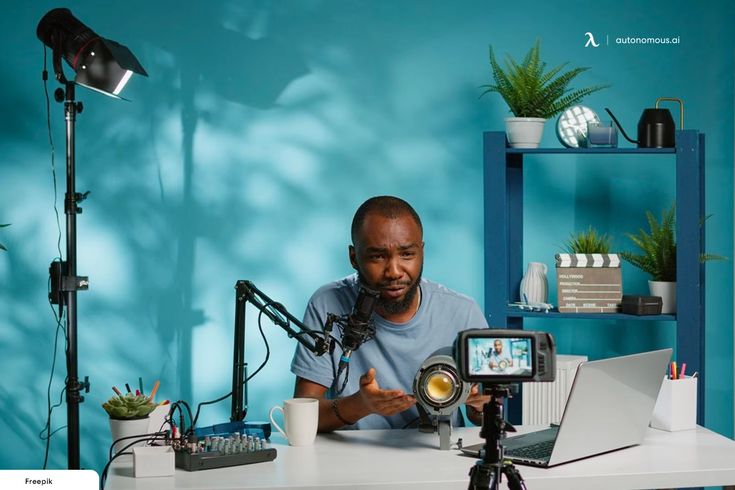How to End a Podcast
A Detailed Guide to Wrapping Up Your Show Effectively
Ending a podcast episode is more than just a simple goodbye—it’s an opportunity to reinforce your message, engage your audience, and ensure that listeners remember your show long after the episode is over. A thoughtful and well-crafted ending can make all the difference in whether listeners return for more or forget about your podcast entirely. In this detailed guide, we’ll explore several techniques and strategies for crafting the perfect podcast conclusion.
1. Recap Key Takeaways
One of the most effective ways to end a podcast episode is by summarizing the key points discussed throughout the show. This recap ensures that your audience walks away with a clear understanding of the main message or lessons you’ve shared. It’s particularly helpful if your episode is educational, as it reinforces the valuable information you’ve provided.
Why Recapping Is Important:
- Reinforces learning: A summary helps your audience solidify the key points.
- Clarifies takeaways: If listeners were multitasking or distracted, a recap can clarify the important messages.
- Engagement: Recapping encourages listeners to reflect on the content and how it applies to their lives.
For example, at the end of a productivity podcast, you could say:
“To summarize today’s episode: we discussed time-blocking, prioritizing your to-do list, and how taking breaks can boost your overall productivity. Remember, small adjustments in your daily routine can lead to big results.”

2. Include a Strong Call to Action (CTA)
The end of your podcast is an ideal time to encourage your listeners to take action. A strong call to action motivates your audience to engage further with your brand, content, or business. Whether you want them to subscribe, visit your website, follow you on social media, or leave a review, be clear and direct about what you want them to do next.
Types of CTAs to Include:
- Subscribe to your podcast: Encourage listeners to follow or subscribe so they don’t miss future episodes.
- “If you enjoyed today’s episode, be sure to hit the subscribe button so you can catch all of our upcoming episodes.”
- Leave a review: Ask listeners to leave a review on podcast platforms, which can help boost your show’s visibility.
- “We’d love to hear your feedback! Please leave us a review on Apple Podcasts to help others find the show.”
- Visit your website or blog: Direct listeners to additional resources or exclusive content.
- “For more tips and resources on today’s topic, head over to our website at [YourWebsite.com].”
- Follow on social media: Invite listeners to join your community on platforms like Instagram, Twitter, or Facebook.
- “Follow us on Instagram at @YourPodcast for behind-the-scenes content and updates!”
Why a CTA Is Important:
- Promotes engagement: It creates an opportunity for your audience to deepen their relationship with your brand.
- Drives growth: Asking for reviews, shares, or subscriptions helps your podcast grow in popularity.
- Builds your community: Encouraging your audience to follow you on social media keeps them connected and engaged.
3. Express Gratitude
Take a moment to thank your listeners for their time. Gratitude is a powerful tool for building a loyal audience. By expressing genuine thanks, you not only show appreciation but also foster a sense of connection with your listeners.
How to Express Gratitude:
- Personal acknowledgment: Directly thank your audience for their support.
- “Thank you so much for tuning in today. We appreciate you taking time out of your busy day to listen to our show.”
- Show appreciation for their engagement: If your listeners engage with your content on social media or leave comments, mention that.
- “A big thank you to all of our listeners who’ve been engaging with us on social media—your feedback and support mean the world.”
Why Gratitude Is Important:
- Builds loyalty: Gratitude strengthens the relationship between you and your audience.
- Positive association: When listeners feel appreciated, they’re more likely to return and continue supporting your show.

4. Tease the Next Episode
Give your listeners something to look forward to. Teasing the next episode or providing a sneak peek of upcoming content creates anticipation and increases the likelihood that your audience will return for future episodes. It also shows that you’re consistently planning valuable content for your listeners.
How to Tease the Next Episode:
- Give a brief preview: Mention a topic or guest that will appear in the next episode.
- “In next week’s episode, we’re diving into how to grow your online business with email marketing, so make sure you tune in!”
- Mention exciting updates: If you have any big announcements or upcoming events, share them.
- “Stay tuned for a special bonus episode next month where we’ll be interviewing a top industry expert!”
Why Teasing Is Important:
- Creates anticipation: A preview gives your audience a reason to return, which boosts listener retention.
- Builds momentum: It keeps your content cycle fresh and gives listeners something to look forward to.
5. Personal Sign-Off
A personal sign-off is a powerful way to wrap up your podcast with a memorable touch. Whether you use your name, a tagline, or a phrase unique to your show, ending on a personal note helps to humanize your brand and reinforces your relationship with your listeners.
How to Personalize Your Sign-Off:
- Use your name or brand identity: Sign off with your name or a familiar phrase that your audience will recognize.
- “This is [Your Name], signing off. Until next time, take care!”
- End with a signature phrase or quote: A memorable catchphrase or quote related to your podcast can leave listeners with a positive impression.
- “Remember, it’s not about perfect, it’s about progress. Take care, everyone!”
Why Personal Sign-Offs Are Important:
- Creates familiarity: Personal sign-offs help establish a consistent tone and presence for your podcast.
- Humanizes your brand: It strengthens the connection with your audience by making you seem more approachable.

6. End with Music or Sound Effects
Ending your podcast with music or sound effects can signal to your listeners that the episode has concluded. Music sets the tone for your podcast’s brand, whether it’s energetic, calming, or reflective. Ensure that the music is consistent with the mood and message of your show. If you’re using sound effects, make sure they enhance rather than distract from your content.
Tips for Using Music and Sound Effects:
- Choose music that matches your vibe: Your outro music should align with your show’s tone (e.g., upbeat, mellow, inspirational).
- Fade out gradually: Ensure that the music fades out smoothly so that your podcast feels cohesive.
- Use sound effects sparingly: Sound effects should be used to punctuate important moments or add personality to the end of the show.
Why Music and Sound Effects Are Important:
- Signals the end: A consistent musical cue helps your audience recognize when the episode is over.
- Enhances the mood: Well-chosen music can reinforce the emotional tone of your podcast and leave listeners with the right feeling.
Conclusion: Crafting the Perfect Podcast Ending
Ending a podcast episode effectively is an art that requires intentionality. By recapping key points, including a strong call to action, expressing gratitude, teasing future content, adding a personal touch with a sign-off, and using music or sound effects, you can ensure that your podcast leaves a lasting impression. With a well-crafted conclusion, you’ll encourage your listeners to return for more, engage with your content, and become loyal supporters of your show.
Remember, a thoughtful ending not only ties everything together but also builds the foundation for a long-term relationship with your audience. So, make every conclusion count!
